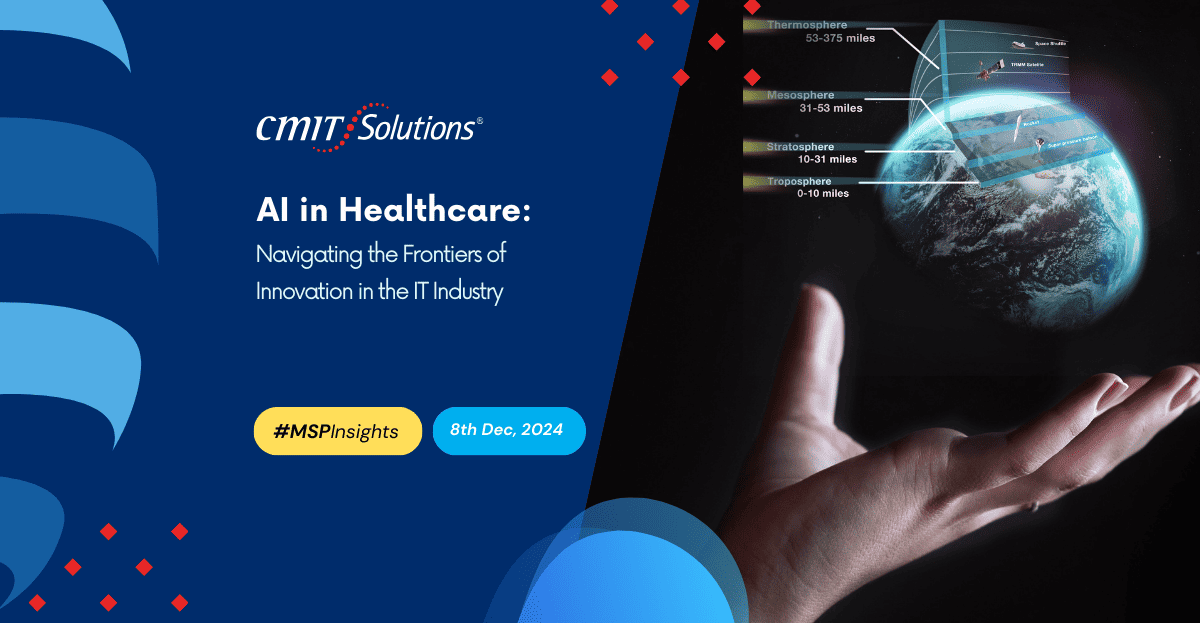Introduction
Artificial Intelligence (AI) is not just a buzzword in the IT industry; it’s a transformative force that’s reshaping how we approach healthcare. The intersection of AI and the medical field is unlocking unprecedented possibilities, from diagnostics to personalized treatment plans. In this blog post, we’ll delve into the ways AI is revolutionizing the healthcare landscape within the IT industry, exploring the advancements, challenges, and the promising future of AI-powered healthcare solutions.
1. Diagnostic Precision: The AI Advantage in Medical Imaging
AI algorithms analyze medical images with extraordinary precision, aiding in early detection and accurate diagnosis of conditions such as cancer, fractures, and neurological disorders.
Example: AI-powered diagnostic tools in radiology providing detailed insights from MRI and CT scans, assisting healthcare professionals in making more informed decisions.
2. Personalized Treatment Plans: Tailoring Healthcare with AI
AI analyzes patient data, including genetic information and treatment outcomes, to develop personalized treatment plans. This tailored approach improves treatment efficacy and reduces adverse effects.
Example: Oncologists using AI to analyze genetic data and recommend targeted therapies for cancer patients based on the specific characteristics of their tumors.
3. Predictive Analytics for Disease Prevention
AI-driven predictive analytics identify patterns and risk factors, enabling healthcare providers to intervene early and prevent the onset of diseases such as diabetes, cardiovascular conditions, and infectious diseases.
Example: Predictive models analyzing patient data to identify individuals at high risk for diabetes and implementing preventive measures.
4. Virtual Health Assistants: Enhancing Patient Engagement
AI-powered virtual assistants provide patients with personalized health information, medication reminders, and post-treatment follow-ups, enhancing patient engagement and adherence to treatment plans.
Example: Virtual health assistants offering real-time guidance on medication schedules and lifestyle modifications for patients managing chronic conditions.
5. Natural Language Processing in Electronic Health Records (EHRs)
AI’s natural language processing capabilities streamline the management of Electronic Health Records (EHRs), making patient information more accessible and improving the efficiency of healthcare workflows.
Example: AI-powered systems that extract relevant information from clinical notes, facilitating quick access to critical patient data.
6. Drug Discovery Acceleration: Revolutionizing Pharmaceutical Research
AI expedites the drug discovery process by analyzing vast datasets, predicting potential drug candidates, and identifying new therapeutic targets. This accelerates the development of innovative treatments.
Example: Pharmaceutical companies using AI algorithms to analyze genetic and molecular data to identify novel drug candidates for specific diseases.
7. Remote Patient Monitoring with IoT and AI
The integration of IoT devices with AI enables real-time monitoring of patient health metrics. This remote monitoring allows for proactive healthcare management and reduces the need for frequent hospital visits.
Example: Wearable devices collecting and transmitting real-time data on vital signs to a centralized AI system, alerting healthcare providers to any anomalies.
8. Enhanced Cybersecurity Measures in Healthcare IT
AI strengthens cybersecurity in healthcare IT systems by detecting and preventing potential threats, safeguarding patient data from unauthorized access and cyber attacks.
Example: AI-driven cybersecurity solutions continuously monitoring network activity to identify and respond to potential security breaches in healthcare institutions.
Advantages of Integrating Artificial Intelligence in the IT Industry for Medical Applications:
1. Diagnostic Precision:
AI enhances diagnostic accuracy by analyzing medical images with precision, leading to early detection and more effective treatment plans.
2. Personalized Treatment Plans:
AI-driven personalized treatment plans improve patient outcomes by tailoring interventions based on individual characteristics, genetics, and treatment responses.
3. Predictive Analytics for Disease Prevention:
Predictive analytics powered by AI identify risk factors, allowing for early intervention and preventive measures, ultimately reducing the burden of chronic diseases.
4. Virtual Health Assistants:
AI-powered virtual assistants enhance patient engagement by providing personalized health information, reminders, and support, leading to better adherence to treatment plans.
5. Natural Language Processing in EHRs:
Natural language processing streamlines EHR management, making patient information more accessible to healthcare providers, improving efficiency, and reducing administrative burden.
6. Drug Discovery Acceleration:
AI expedites drug discovery, accelerating the development of innovative treatments and potentially reducing the time and cost associated with bringing new drugs to market.
7. Remote Patient Monitoring with IoT and AI:
AI, coupled with IoT, enables real-time monitoring of patient health, facilitating proactive healthcare management and reducing the need for frequent hospital visits.
8. Enhanced Cybersecurity Measures:
AI strengthens cybersecurity in healthcare IT systems, detecting and preventing potential threats to safeguard patient data and maintain the integrity of medical information.
Disadvantages and Challenges:
1. Ethical Concerns in AI-Driven Healthcare:
Ethical considerations arise regarding issues like patient privacy, consent, and the responsible use of AI, particularly when dealing with sensitive health information.
2. Data Quality and Bias:
Biases in training data may result in biased AI algorithms, potentially leading to disparities in healthcare outcomes. Ensuring data quality and addressing biases is a ongoing challenge.
3. Regulatory and Compliance Challenges:
Meeting regulatory standards and ensuring compliance with healthcare laws, such as HIPAA, presents challenges as AI applications become more integrated into healthcare systems.
4. Cost of Implementation:
Implementing AI technologies in healthcare requires significant investment in infrastructure, training, and ongoing maintenance, which can be a barrier for some healthcare institutions.
5. Human-Machine Collaboration:
The integration of AI may lead to concerns about the displacement of certain healthcare roles. Striking the right balance in human-machine collaboration is a challenge in the evolving healthcare landscape.
6. Interoperability Issues:
Ensuring seamless interoperability between different AI systems and existing healthcare IT infrastructure can be complex, leading to potential challenges in data exchange and communication.
7. Algorithm Transparency and Interpretability:
The lack of transparency in AI algorithms can be a concern, especially in critical healthcare decisions. Understanding and interpreting complex algorithms remains a challenge.
8. Resistance to AI Adoption:
Healthcare professionals may exhibit resistance to adopting AI technologies due to concerns about job security, a lack of understanding, or fear of technology-driven errors.
Conclusion
The fusion of Artificial Intelligence and the IT industry has ushered in a new era of possibilities in healthcare. From diagnostic precision to personalized treatment plans, AI is proving to be a formidable ally in improving patient outcomes and optimizing healthcare workflows. As we continue to explore the frontiers of AI-powered healthcare solutions, it’s clear that the collaboration between technology and medicine holds the promise of a healthier and more connected future. The journey toward AI-driven healthcare is not just a technological advancement; it’s a testament to the transformative potential when innovation meets compassion in the pursuit of better healthcare for all.





